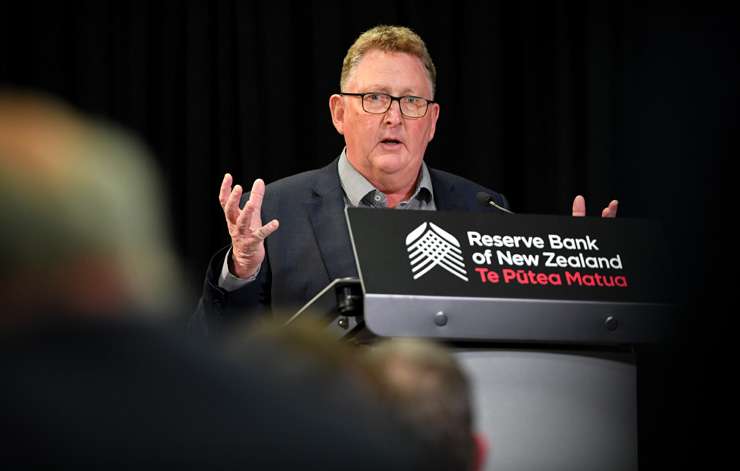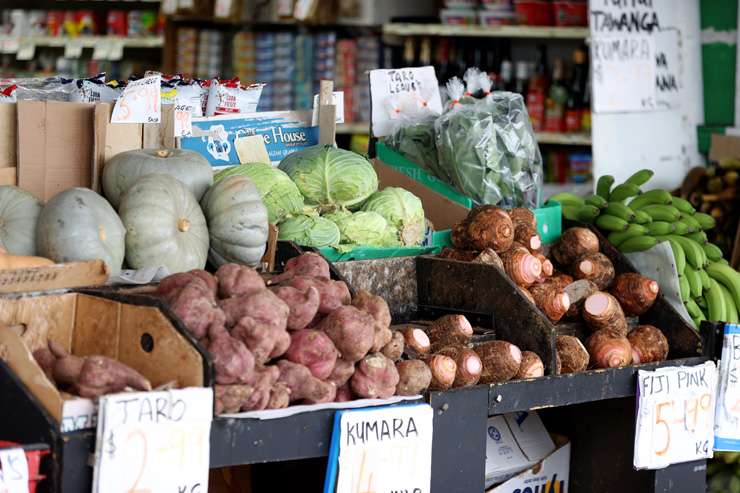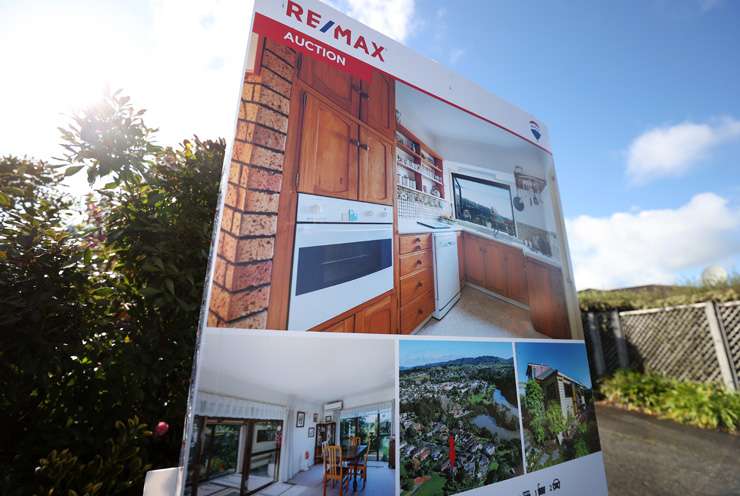ith inflation running hot and the Reserve Bank hiking interest rates to cool it, KiwiBank economist Mary Jo Vergara breaks down what inflation is, why it’s so high and what that means for the housing market.
Q: What is inflation?
Inflation describes the general increase and prices of goods and services in the economy. That includes everything from food and fuel, clothing items and housing. It's measured by the Consumer Price Index by Stats NZ and what that index does is basically sample a representative basket of those goods and services in the economy each quarter. It records any changes to that basket, so a weighted average price of today's basket is compared to a basket of a different time and any change in those two indexes will represent either inflation, which is a rise in prices, or deflation, when there's been a decrease in prices.
Q: Why don't we hear much about deflation?
Start your property search
If you do go and buy goods and services you might see deflation on some of those goods. For example, last quarter we did see petrol prices drop 4%, so there was deflation on petrol prices but when you put them all together it's been the case we've usually seen inflation.
Q: Will prices ever come down again?
I think that's what the Reserve Bank wants to see. It wants to see inflation coming back down and that happens by demand cooling and prices have to adjust lower. That's the intention of the Reserve Bank, to cool demand which would mean firms would start to discount their prices.

KiwiBank economist Mary Jo Vergara: "A lot of the inflation we're seeing now, specifically the domestic side, stems from the housing market ." Photo / Fiona Goodall
Q: Why is inflation so very high?
There are a couple of things. Firstly, we're still importing a lot of inflation from offshore. We have seen the turn in shipping costs but we're still very far away from the rest of the world and freight costs are still a big issue for businesses, so we're still importing a lot of inflation but that should turn and quite rapidly into next year (2023). What we're more concerned about is the domestically-generated inflation, so the non-tradable side which just continues to strengthen. We haven't seen any let up there. The labour market is still very tight so all of this suggests there will be more inflation to come and to be generated from the domestic economy. As people come to expect higher prices wage expectations are increased accordingly.
Q: What is domestic inflation?
It's those goods and services that aren't facing any foreign competition so their prices are set based on the demand and supply of those goods and services in the economy. The price is set basically on our exclusive consumption of it. Things like council rates, education, rents, those prices are influenced just by what's happening in the domestic economy.
Q: Inflation is running at over seven per cent yet the Reserve Bank has a two per cent inflation target – what’s going on?
The Reserve Bank is mandated to maintain price stability and they do that by keeping the inflation rate between one and three per cent, specifically targeting the mid-point two per cent. The Reserve Bank’s focus is on the medium term and that's because monetary policy works with about an 18- month lag. One reason for that lag is because policy takes a while to take effect because of the overwhelming preference amongst New Zealanders to fix their (mortgage) rates so they don't really feel the effect of a change in interest rates until they roll off into the revised rate. That's why the Reserve Bank focuses more on the medium-term outlook rather than trying to effect change right now.

The Reserve Bank governor Adrian Orr has warned that New Zealand is likely to enter a recession in 2023. Photo / Getty Images
Q: But why is a two per cent target the golden number?
Two per cent was introduced because it allowed the Reserve Bank to focus on inflation expectations, so they introduced two per cent to influence people's expectations that inflation would remain at two per cent and maintain stability, so sort of anchoring those inflation expectations. They want households and businesses to expect prices to remain stable so they can make their decisions with some sense of certainty. When we have it fluctuating around or we don't have anchored expectations of where inflation should be people can't make their business decisions or households can't make their own decisions when the outlook is uncertain. What’s preventing it from getting to two per cent quickly is the domestically-generated inflation. That looks pretty persistent given that it makes up 60% of the consumer price index.
Q: How does inflation affect the property market?
I think it's more the other way round because a lot of the inflation we're seeing now, specifically the domestic side, stems from the housing market. Just looking at how much it costs to build a home, it costs I think around 16% more than a year ago so the property market, the housing market, has been a strong source of inflation pressure. It (the property market) will be affected by how the Reserve Bank tries to tackle inflation by lifting interest rates which is going to have quite an impact on the property market, which it already is.
Q: What’s the connection between inflation, interest rates and home-owners?
We kind of see the connection between inflation and the housing market as being via interest rates. The Reserve Bank's primary tool in delivering monetary policy is through the Official Cash Rate (OCR) and the Official Cash Rate sets all interest rates in the economy. We are in a situation where the Reserve Bank is lifting interest rates in order to tackle inflation and with higher interest rates it does make home ownership more expensive. Mortgage rates rising means that your mortgage expense does get more costly.

The sudden spike in inflation has resulted in financial hardship for Kiwis, with the cost of groceries rising over the year. Photo / Getty Images
Q: Can you explain why we had that period of record low interest rates after Covid arrived, when the housing market went crazy?
That low interest rate environment was in response to deflation. If you remember back in 2020 the economy was shut down, demand was heavily hit because we were all in lockdown and so the Reserve Bank's response was to slash interest rates to try and stimulate economic activity, which it did, and that's why we had such record low interest rates. But now we are in an environment where demand is very strong and inflation now is the main problem so we're seeing interest rates rise to rein in rapidly rising inflation. We're in a different environment and we no longer need those record low interest rates any more. We always knew those rates weren't going to last but it was just the speed at which interest rates have risen that have kind of caught many people off guard.
Q: It seems one minute the Reserve Bank is trying to stimulate growth and the next minute it's trying to dampen everything down – is the economy a vicious cycle?
The economy does go through these sort of cycles and I think the housing market mimics it quite closely. Obviously, we had 2020 and that lockdown which led to the deepest recession I think we've ever recorded. We have to go back took Great Depression times to see something comparable. But with the stimulus the Government has put in place as well as the Reserve Bank we had a very strong recovery over 2021. Now we're in an environment where demand is outstripping the economy's ability to supply it and in that environment it's created a breeding ground for inflation so the Reserve Bank’s response now is to try and increase interest rates to bring inflation down, to kind of cool down demand and bring the economy back into better balance.
Q: What has the impact on the housing market been?
We're seeing it in retreat. It's been in retreat since November 2021 which was the peak of the housing market and then we've seen house prices come down 12% since then. The housing market has been a strong sense of demand for the economy, whether that's for supporting household consumption because of the wealth effect but also it's supported residential construction so both of those have been a driving force for economic recovery. But we're now seeing that in retreat. Demand for housing is clearly slowing and that should take some heat out of the economy.
Q: When will we reach two per cent inflation?
I think the way that we get to two per cent inflation is with a significant slowdown in the economy, potentially even a recession. If they (the Reserve Bank) were to go to 5.5% (the OCR) it would induce a recession for New Zealand and that may be the only wat we can get back to a two per cent inflation rate and obviously that means steeper house price declines in that environment. We're picking a 20% decline in house prices from peak to trough early next year (2023) so the housing market really does have to cool down and that's the likely scenario with the Reserve Bank continuing to lift interest rates.
Q: Are you worried about the big number of mortgages that are due to rollover from low fixed rates to much higher rates?
I am a little bit because there's a lot of mortgages that are refixing and refixing soon. Around 50% are due to be refixed over 2023 and they'll be moving from record low rates of 2% and 2.5% onto 6% and 7% rates. It's a few $1000 more in monthly mortgage interest rate payments so it will really hurt household budgets and really cool that household consumption.

Higher interest rates have had a dampening effect on the housing market. Photo / Fiona Goodall
Q: Will there be mortgagee sales as a result?
We're not seeing it yet and I think it's hard to say because we've got such a strong labour market. Often when you have these mortgagee sales it's due to a weakening labour market but right now our labour market continues to be incredibly tight. We have an unemployment rate holding at record low levels of 3.3% while participation in the labour market is still very high. In that environment people are still relatively secure in their jobs, they are still getting their incomes, we won't have an income shock or anything so that should keep the housing market at least buoyant and mortgagee sales less likely. It's only when we start to see unemployment really rise that that becomes a more likely scenario.
Q: Any advice for people facing pain ahead?
I can't give financial advice necessarily but I think like many households, myself included, thinking about where they can make their cost savings. I think we might see a change in spending behaviour and that's something we're tracking here at KiwiBank with our spending tracker. We're already starting to see signs people are being a bit more conservative about how they're spending their money. You know, 2023 will be a tough year. If you're a homeowner and you're concerned about what the change in interest rates mean for you go to your bank and they'll help you out with the options that you have in front of you to be able to ride out next year.


















































































